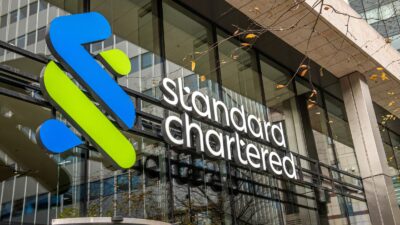If you are building a portfolio of individual stocks and shares, it’s wise to start with a spread of basic, solid companies. I’m thinking stalwart FTSE 100 blue chips. With a great track records. Delivering both growth and income. Selling stuff people want to buy, even when times are hard. Ideally, with billions of customers around the world.
Few companies meet these criteria as completely as consumer goods giants Reckitt Benckiser (LSE: RB) and Unilever (LSE: ULVR).
Household goodies
Stalwarts is the word. Reckitt Benckiser has a market capitalisation of £47bn, although it looks a minnow compared to Unilever, whose market-cap tops £115bn.
Reckitt Benckiser was founded in 1823, with Unilever the relative newbie, launching in 1929. They have a tremendous record of shareholder returns. For example, Reckitt’s share price has risen from 2,385p to 6,631p over the last decade, up 188%, while Unilever has climbed from 1,487p to 4,258p, up a near identical 186%. Dividends were on top.
Brand power
As for selling stuff people want to buy, few do it better. I can guarantee you have some of their products in your kitchen, bedroom or bathroom. Reckitt Benckiser’s top brands include Air Wick, Calgon, Cillit Bang, Clearasil, Durex, Harpic, Nurofen and Vanish, while Unilever’s roster boasts Ben & Jerry’s, Domestos, Dove, Knorr, Marmite, Magnum, PG Tips, Surf and Vaseline.
Better still, they’re selling these brands all over the world, as middle class consumers in Asia and elsewhere upgrade from cheaper local names. This offers faster growth. For example, Unilever’s first half sales growth was 2.7%, but this rose to 4.1% in emerging markets. Seven out of every 10 households around the world contain at least one Unilever product. Although sales are not wholly recession proof, this does offer some defence.
Slowing down
Despite these advantages, the last year has been disappointing for investors in these two stocks. Reckitt Benckiser is up just 0.4%, and Unilever 1.9%. That’s pretty much in line with the FTSE 100, which rose 1.47%.
Reckitt Benckiser dipped earlier this year as profits grew at a slower pace than expected, and its Scholl footwear business also slipped. Unilever, meanwhile, was knocked by all the furore over whether it would shift its HQ from London to Rotterdam to simplify its corporate structure, a move defeated by a shareholder revolt. Both companies sold off in the recent stock market turbulence but have recovered pretty quickly.
Matching up
Reckitt Benckiser and Unilever shared two characteristics that look off-putting at first. They are relatively expensive, currently trading at 20.30 and 21.38 times earnings respectively, against 15.84 times earnings for the FTSE 100 as a whole. They yield 2.49% and 2.94% respectively, while the index averages 4.25%.
However, these figures are also testament to the fact that both stocks are consistently in demand and investors have to pay a premium price as a result. Also, dividend policy has been progressive. In 2014, Reckitt Benckiser paid £1.39 per share, in 2019 that’s expected to be £1.80 (a rise of 29%). Similarly, Unilever paid €1.14 per share in 2014, a figure that’s expected to hit €1.42 in 2019 (up 25%). They both look strong long-term buy-and-holds to me, as they always have.







